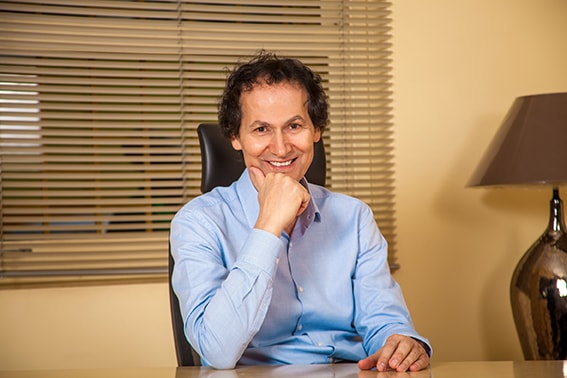On July 5, Al Mada made a high-profile exit. The royal holding announced successively the creation of a subsidiary specializing in the agri-food industry, Teralys, and the acquisition via this same subsidiary of a majority stake in the capital of Patisen.
A major player in the agri-food sector, Patisen operates from Senegal in some thirty African markets. Interested in long-range, structuring projects, Al Mada could well have got its hands on a diamond in the rough.
For the time being, no one knows the level of Al Mada’s stake in Patisen’s capital, or how much the royal holding company will pay to acquire the agro-industrial player’s shares. But the choice of Patisen « fits perfectly with the pan-African vocation that the royal investment fund has set itself », according to an investment banker who has carried out similar operations on the continent on behalf of private Moroccan players.
Teralys is Al Mada’s first venture into the booming African agro-industrial market. And with Patisen, the royal group has landed an operator with a double strike force. Firstly, a proven strategic vision and, secondly, the top management, a man with proven experience of continental markets, coupled with a marketing whiz.
« First, Patisen has demonstrated compelling opportunism in its geographic positioning and in the continued enrichment of its product range. Secondly, if Al Mada decides to retain Lebanese-Senegalese founder Youssef Omaïs as Chairman of Patisen, the holding company would be acquiring the services of an elite manager with a thorough understanding of the operational complexities of the continent, and a resolutely expansion-oriented man, » analyzes the investment banker.
Predestination
Born in Dakar into a family of 12 brothers and sisters, Youssef Omaïs fell into the business at an early age. His parents owned a successful pastry business. As a teenager, he managed the family shop in Louga, a town in the north of the land of Teranga.
In 1981, he decided to go at it alone. He founded a small trading company, which soon specialized in importing flour for bakeries in and around Dakar. Just one year after setting up his business, he bought a modest industrial unit for local pastries, SIPA. There, he produced chocolate bars under the very popular Chocoleca brand.

In a 2019 interview with Forbes, he admits that his first two successes have made him greedy. And so began Patisen’s production of the broths that would make Omaïs a rich man. With the Garmi and Senecao brands, he was met with massive demand and declined numerous brands.
In 1999, he sold his factory to the Swiss group Callebaut & Jacobs Suchard. However, this sale deprived him of his traditional markets due to a non-competition clause. Omaïs then concentrated on alternative markets such as Cape Verde, Guinea-Conakry, Mali and Algeria. But when the non-competition clause expired in 2005, the businessman returned to his old loves and began producing bouillons for the Senegalese market.
« I started with 2 or 3 women in my kitchen, developing and testing new formulas for new markets. Then we grew to 300 women, and then we had to invest in new industrial tools to meet the ever-increasing demand, » he confided to Forbes.
In 2009, he took a major strategic turn by positioning himself in table seasonings, previously the preserve of multinationals. This giant leap opened up major markets, enabling Patisen to scale up its activities and achieve double-digit annual growth.
Massive growth
Omaïs soon became one of Africa’s largest Fast-Moving Consumer Goods (FMCG) groups. With sales approaching 200 million dollars, 7,000 employees and a product portfolio of almost 50 brands, sold in some 40 countries, Patisen is on a roll.
Backed in the early 2010s by the IFC (International Finance Corporation), a private-sector financing arm of the World Bank, Omaïs took advantage of the opportunity to expand its business. In 2018, his group caught the eye of Singaporean behemoth Wilmar, a shareholder in Cosumar, Morocco’s sugar giant. A strategic alliance was formed between the two groups, but it left a taste of unfinished business.
Although Patisen is now one of Africa’s leading food companies, the road to success has not been paved with roses. Under Covid, demand collapsed and the Omaïs business model suffered. The conflict in Ukraine and its corollary, the rise in raw material prices, will once again affect Patisen’s financial situation.
« Perhaps it was the succession of crises that prompted Omaïs to welcome an outside shareholder to its capital for the first time », speculates our investment banker. The fact remains that, with Al Mada, Omaïs will be able to count on a partner that has, in the past, controlled massive agro-industrial activities (Centrale Laitière, Lesieur, etc.).
This unprecedented partnership, for both the royal holding company and the Omaïs family business, could create interesting synergies. In any case, it puts Al Mada at the head of a flourishing business, already structured and covering large geographical areas on the continent. « We’ll have to wait and see how much the acquisition costs before we can get an idea of the ROI, but on paper it’s already what we’d call a good deal », concludes our investment banker.
Written by Réda Dalil, edited in english by S.E.




